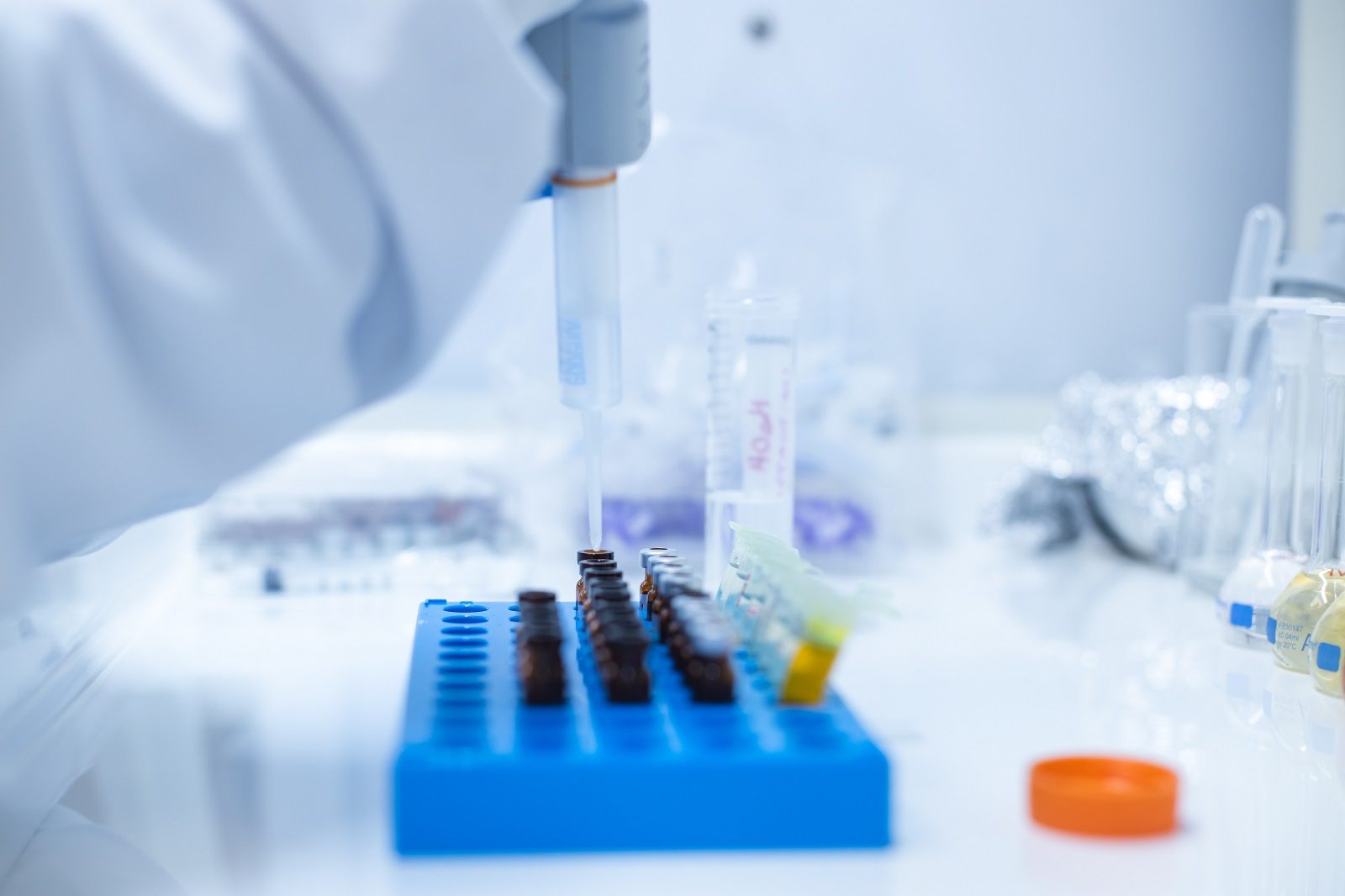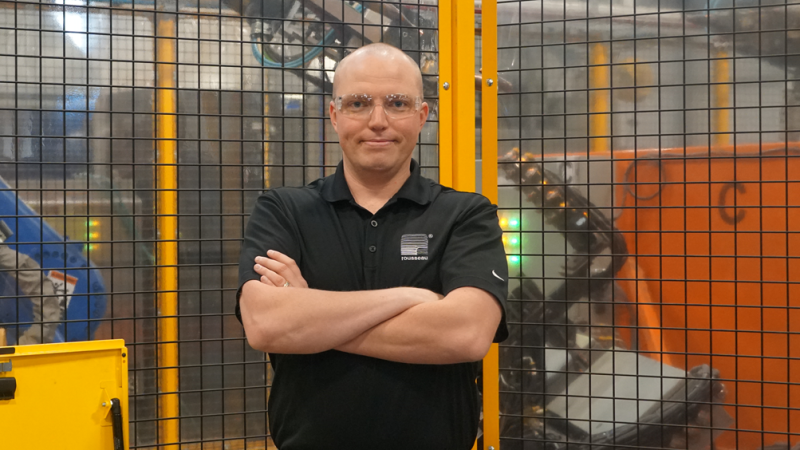Eurofins operates labs and centres of excellence across a global network, providing testing solutions for customers across the food and water, forensics, agri-science, and pharmaceutical sectors. When we last spoke with Mark Carnaghan, Managing Director of Eurofins Food Testing UK, the company was undergoing a period of tremendous growth but was also still navigating the fallout of the Covid-19 pandemic.
 “Last year we saw a rush in new product development activity leading to a surge in rapid turn-around nutritional testing following the opening up of the UK post-COVID,” Carnaghan says. “This has stabilised significantly as we enter a more normal rhythm of testing work with customers.”
“Last year we saw a rush in new product development activity leading to a surge in rapid turn-around nutritional testing following the opening up of the UK post-COVID,” Carnaghan says. “This has stabilised significantly as we enter a more normal rhythm of testing work with customers.”
However, as the industry is recovering from these challenges, new ones are already appearing.
“The food industry will remain strong with no imminent risk of further lockdowns however there is already a transition taking place as consumers look for cheaper solutions for their food consumption needs. In the face of this and other cost pressures on commodities, it’s as important as ever that the correct testing is done on products to satisfy due diligence and food safety requirements,” Carnaghan tells us. “Businesses are increasingly judged on their ability to keep the public safe when they are consuming the products that they produce and sell. We, therefore, have to remain agile so we can provide the testing people need when they need it, whether that be for allergens, authenticity, or microbiology analysis.”
Carnaghan is realistic about the challenges facing the industry, but also the opportunities that exist alongside them.
“It’s quite a challenging market in the sense that there are a lot of competitors out there, but there is also a lot of opportunity for development and growth and sharing your USP to encourage people to want to work with you,” Carnaghan says.
Last year when we talked with Carnaghan he told us Eurofins was establishing a new strategy built around three core pillars.
“We launched that strategy at the end of November last year, and it was well received by the whole team,” he tells us.
The first of these three core pillars is “Risk Partnership”, providing advice, data insight and consultancy support to underpin due diligence programmes. Then there is the pillar for “Turnaround Times”, regarding our efforts to achieve the best possible turnaround for lab results, and “Customer Service and Experience”, which will create best practices in how we interact with our partners.
“Through that new strategy and focus, we’ve won significant business within the seafood cluster of businesses in Grimsby as one example,” says Carnaghan. “Our reliability in service, local touchpoints and new case management tool for handling queries has rebuilt trust in the region and seen us more than double our turnover there. Cost optimisation in food manufacturing makes testing more important than ever.”
Foundations of Future Growth
“We are building the foundations for future growth,” Carnaghan says of the company’s development strategy. “When we last talked, we were just moving into the Heathrow lab. That move is fully complete and has been really successful.”
Eurofins has also made two new acquisitions that best fit its capabilities and operations. The first business is Altair, based in Southwest Wales. It is a microbiology company that has given Eurofins the full reach across the mainland UK that it did not have before.
“That’s what our hub and spoke model is all about,” Carnaghan says. “We now have complete coverage with our regional lab network delivering on local insight and support, fast turnaround times and easy access to our main chemistry centre of excellence at Wolverhampton.”
Similarly, Eurofins has made an acquisition in Northern Ireland with a business called BioSearch, completing the company’s reach and access to new and current customers on the island of Ireland.
However, he is the first to admit that Eurofins is doing this in a challenging environment during unprecedented times. “The costs of consumables, fuel for our network of refrigerated vans and utility costs at our laboratories have all gone up by unprecedented amounts,” Carnaghan acknowledges.
Rolling with the Changes
Eurofins has generated a number of responses to these circumstances, ranging from the innovative to the pragmatic.
 “We have done our best to shield these from our customers but inevitably we are having to pass elements of these on,” Carnaghan says. “However, we’re also pleased to be investing as well. Our first two electric vehicles joined our logistics fleet in April in the first step in our commitment to become fully electric by 2026. The team have really engaged with the initiative, and we are using data analytics to inform the next stages of our roll-out plan.”
“We have done our best to shield these from our customers but inevitably we are having to pass elements of these on,” Carnaghan says. “However, we’re also pleased to be investing as well. Our first two electric vehicles joined our logistics fleet in April in the first step in our commitment to become fully electric by 2026. The team have really engaged with the initiative, and we are using data analytics to inform the next stages of our roll-out plan.”
It is a positive step, but also only the first in an ambitious process. The firm has a fleet of 61 vehicles with some collection routes exceeding 200 miles in one day and one over 400.
As well as costs, recruitment remains an ongoing effort to hire the best for Eurofins, as it does for many companies, but it is also one Carnaghan has a strategy in place for.
“Before the really big spike in inflation we decided to implement a pay and progression model for our staff,” he tells us. “Particularly for entry-level roles, we have seen quite a high turnover as people naturally focus on base pay. To combat this, we now have a situation whereby we can better recognise employees’ experience and additional skills by creating additional tiers of pay. We have a rolling training programme and conduct assessments every six months against set criteria to reward people as soon as they are eligible. Whilst the initiative is in its early days, we are hopeful that it will allow us to keep our workers for longer.”
A New Direction
When we talk with Carnaghan it is clear that Eurofins has achieved a lot since we last looked at the company, but he is most excited when talking about what the company is working on for the future.
“We work with the University of Lincoln on regional food sector support activities, including collaboration on a deep dive to understand how we can assist the seafood industry in Northeast Lincolnshire through the UK Food Valley pilot (seafood sector) project”, Carnaghan says. “This has led to us engaging on various initiatives with the University through the UK Government’s Community Renewal Fund (CRF), including the provision of business-focused training in food quality, nutrition and compliance.”
Carnaghan believes the role of data will also be increasingly important in Eurofins’ future.
“I can see a future in three-to-five years where the industry has fully embraced data-driven solutions and transactional testing, while still needed, is only the starting point of what we should be offering,” he predicts. “We have a huge amount of data that could be highlighting the sectoral trends and emerging risks of the future for our customer base.”
The company is also looking beyond core manufacturers and retailers at new potential clients, such as in the aquaculture and dairy industries. This is where Eurofins Food Testing UK benefits from being part of an international group.
“We have experts in Norway where they have a very strong relationship with aquaculture, and in Denmark with dairy farming. We can access and learn from that experience,” Carnaghan reflects.
With an extended period of a potential recession on the horizon, all clients are going to be looking at testing programmes to see if they need to be spending as much as they are.
“We want to target that spending, to offer the best value for money but also the best food safety standards for the end users, the people who eat the food,” Carnaghan says.







